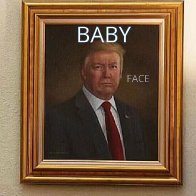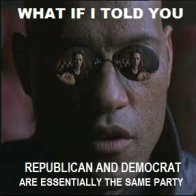Trump and DeVos Are Attempting To Destroy Public Education In The United States

I spent 35 years working in the American public education system. Those years were spent as a teacher, a psychologist, a school administrator, a district administrator, and a regional administrator. Upon my retirement from the public system, I spent the next 10 years as a Professor at a private university which allowed me to see the other side of track, private schools, home-schoolers, voucher schools, charter schools, etc. If nothing else, I feel that I have some expertise in this area and can objectively comment on our current Secretary of Education, Betsy DeVos.
I will begin by saying that I have no objection to private school education, home-schooling, or charter schools. Each has a role in the American educational system and each has turned out students who have gone on to successful careers as adults. I am totally opposed to voucher systems for reasons that I will explain later in this article.
I do want to start, however, with the Secretary of Education. Ms. DeVos is, as are many of President Trump's cabinet level appointees, eminently unqualified to hold the position. Her major experience is as the co-owner of AMWAY, a semi-pyramid scheme with questionable finances. Her major education credentials are her vehement opposition to public education and her almost evangelical devotion to voucher based education. Ms. DeVos does not understand the educational system as it is constructed, nor does she understand the causation for school failures.
Instead, the almost reflexive approach of Ms. DeVos to almost every question concerning school improvement is that we have to have more voucher programs or more home-school programs, or in a rare moment of public school support, more charter schools. She generally qualifies those statements with some endorsement of privatization of those schools in order to make them more efficient. Ms. DeVos has also fallen lock step in line with the President's current position on school safety. Teachers should be allowed to be armed. There should be more armed guards. The age to purchase AR-15s should stay at 18. Now, the reader should remember that Ms. DeVos has yet to visit a single under-performing school nor does it appear that, she has read any of the studies on education in the past fifteen years.
Let's look at some of the facts concerning education. For all the rhetoric, the reality is that over 90% of America's children are receiving their education in public schools. Of those 90%, a great majority of the parents of those children are satisfied with those schools. There are some schools that are failing. That is not being debated. There are also private and parochial schools that are failing. In fact, the statistics on children who utilize vouchers to attend private or parochial schools do worse on their standardized tests than comparable students who remain in the public schools. National testing results {from DeVos' own DOE} show that students in public schools have increased their mean reading scores by over 5% in the past two years and their mean math scores over 19% during the same time period. Students who have attended voucher schools have had scores of 2% increases on reading and 1% increases in math. These are striking differences in scores and about as definitive a demonstration that vouchers don't work that can be shown. It is fairly obvious that neither Ms. DeVos or President Trump has read their own statistics. It is also fairly obvious that the members of congress have not read those reports when they re-approved the District of Columbia voucher program.
Below, you will find a list of the reasons I argue against vouchers and plans that cut funding to public education. Each of these can be found to be fully supported in the professional, peer reviewed literature such as the "Journal of Education", the "Journal of Educational Administration", "Education Today", the "Journal of Special Education", the "Harvard Education Review", etc.
- There is limited capacity in private and parochial schools for voucher students. With 90% of students attending public schools, it is estimated that only 5-8% of those students will be able to be educated at private or parochial schools, leaving the other 82-85% of the students behind.
- The least likely areas to benefit from voucher programs are rural areas. There are not enough private and parochial schools to allow voucher students.
- Voucher schools would be selective in the students they accept. That is, they will take students with the most promise or the least amount of problems, thereby segregating entire classes of students.
- Vouchers are primarily used to attend parochial education. The size of vouchers in most localities meets the costs of education in most of those schools. For students in private schools, voucher programs act as partial scholarship programs for families that already can afford tuition.
- There is no provision for accountability for schools that receive vouchers. That means that there are no curriculum accountabilities, test accountabilities, teacher credential accountabilities, etc.
- There is no mandate for background checks for homeschooled children whose parents might receive a voucher for on-line schooling. This might appear like a minor point, but there are cases of parents with abuse histories or even worse, severe mental health issues harming their own children.
- There are definitely separation of church and state issues in the provision of voucher programs. Does a school have to meet non-discrimination laws if they accept voucher money? D
- Are special education students protected by due process in voucher schools? Can they be suspended or expelled in violation of public law? Can the government force compliance on private and parochial schools.
- How do you insure that voucher programs don't take money our of the already underfunded public school coffers? Where does the money come from? Even though there is an average cost per student in every school district, much of that cost is prorated against group costs. When funding is decreased, supplementary programs like reading specialists, art, music, gifted programs, tutorials, etc. are eliminated because they are not mandated and they rely on that prorated cost.
Vouchers and school privatization has not worked in this country. One only has to look at the results of the largest and longest funded system in the United States in Milwaukee and Racine, Wisconsin. The school boards in those two localities that were rabidly pro-voucher have been overwhelmingly rejected and replaced with anti-voucher advocates. This happened after the test results for both Wisconsin and Racine in their aggregate scores declined precipitously in both math and reading. When the scores of voucher and non-voucher students were disaggregated, it was found that the decline in scores came from the voucher students. The system was a massive failure.
It would be good if Betsy DeVos would do something that is basic for an education secretary. Read the studies. Pour over the data. Make the decisions that benefit students not the cronies who will make money based on the latest education scam.
Tags

Betsy De Vos would like nothing more than for the public school system to fail, and those funds be used to pay for religious schools for America's children. And I'm sure that she means fundamentalist Christian schools.

And I'm sure that she means fundamentalist Christian schools.
She certainly doesn't want those tax dollars going to Muslim schools.

When I was younger I grew up in Michigan and the views of Betsy and Richard De Vos have been well known for a lot of years, but no thinking person ever had the nightmare that they would ever be in the position to put it into action. They honestly want to divert all of the money dedicated for public education to Christian School education. Period. That's it. That is all they want and all they will work toward until they get it and as long as they have the power to do it that is all they will settle for. They would prefer that the type of Christian church school be a fundamentalist church school that interprets the Bible literally, meaning that it teaches Creationism and that everything the the Bible says is to be taken as truth as it is written, with no exceptions. However they would still be willing to see the money go to more "liberal" Christian church schools, as long as none of it goes to any non-Christian schools.
Anyone in Michigan or is from there who has paid attention to the local news for the last 40 or 50 years knows exactly what they want and that is it.

I sill live here. Although I think public funds should not be going to religious schools, in much of the state the facts are the charter schools are better. My oldest daughter went to a charter that did not cost any money to send her to and was much better than the public school in our district we lived in at the time and it was not a religious school. (google "flextech")
In Detroit the school system is in such bad shape and given the history of constant corruption, i'm not sure it SHOULD be saved. Despite being in the highest percentile of funds per student for decades they have been in the bottom percentile as far as education quality for decades and it is due to corruption that is documented and happens over and over. I am not sure if charter schools are the answer but i AM sure the problem is not that the Detroit schools don't get enough money. Over $14K per student is crazy high, and it was that high when the enrollment numbers were still good. Take a look at these links and tell me how do you fix this? It's been going on too long for more of the same. Maybe Detroit should be a charter experiment? I don't have the answer, I just know it's not more of the same.

Michigan and Ohio are big failures. The ECOT scandal in Ohio where the owner basically ran a total scam and lied about attendance. There is an ongoing dispute over how many millions need to be repaid to the state.
DeVos admitted she failed to even once visit a troubled school in Michigan and is nothing more than a cheerleader for rich folks to get a tax break on sending their children to their private school of choice.
If rich people have the money to send their kids to private schools, then great but getting other tax breaks for it or getting state or government money toward that is just a greedy despicable move to give to the rich.
This push for putting children into "pay to play" and "for profit schools", is just a way for rich scammers to cheat the system. With no oversight on the type of learning and education these schools indulge in, who knows what kids will suffer under their profit making schemes?
DeVos is an advocate of Trump University and we saw how that played out on adults.

Not that they are not doing their best( Mr. Trump and Ms. DeVos) to bring it to new lows, our educational system has been dysfunctional in one form or another for the past 30 years or so. The modern day answer has been to throw fistfuls of money at it (which seems to be the solution for all woes these days), but to no avail.
How about this, begin by putting the teachers back in charge of teaching and actually holding students (along with their parents) responsible for their academic performance (or lack of it). For some time the psycho babble regarding education has been quite deafening and has yielded little to no results at best. Perhaps it is time to take a step back (to a time when education actually educated folks), in order to take a step forward and go back to what worked in the fifties and sixties tweaking it as we go along. Or if one finds a lack of progression in that train of thought, take what works in other Countries and apply it to our own situation.
The public education system used to work, make it work again for everyone.

If nothing else, I feel that I have some expertise in this area and can objectively comment on our current Secretary of Education, Betsy DeVos.
You may have expertise, and you are clearly able to comment intelligently. Objectivity is another matter entirely, and your history suggests you are over-promising on this front. So does the title of your article, BTW.
Personally, I have a somewhat mild opposition to school vouchers. I don't think they'll actually matter, and we'll have to listen to months or years of animated, hyper-emotional ranting about how they are either the salvation or the death of American education, depending on which wingnuts are speaking.
A few ideas for you to consider:
- There is no reason that vouchers could not be limited for use exclusively at accredited schools.
- There is no reason that accreditation could not include mandatory participation in and minimum scores on standardized testing.
- There is no reason to think that vouchers will result in some sort of mass migration. As you note, capacity is very limited everywhere.
- There is no reason to presume private schools will not raise tuition by the amount of the voucher, thus making the feared migration more unlikely.
- Background checks for parents whose kids attend school online is the single most insane idea I've read in months. We're not worried about you staying home with your 3 year old, but if your 16 year old son wants to go to high school online....we need your fingerprints? Oh good grief.
- Funding is a potential issue, but not necessarily an insurmountable one. A school that loses the funding from a child on a voucher also doesn't have the expense of educating that child. Whether or not those offset will depend on the size of the voucher.
At the end of the day, they probably won't make much difference either way.
Claims that DeVos is trying to destroy education in America presume she possesses the necessary competence level to do so and imply that it hasn't been fundamentally destroyed for decades already. There is little evidence to suggest either of those is true.

Thank you for a thoughtful response to my article. Allow me to attempt to respond to your ideas, based on research in the field and my observations over my career.
1. You are correct in saying that vouchers can be restricted to accredited schools. The question is where are the accreditations coming from? That is not meant to sound flippant but there are multiple accrediting agencies {e.g. the Archdiocese, the Association for Private Schools, The Association of Homeschoolers, etc.}. Each of those agencies have their own accrediting standards and they are widely diverse. Some require teachers to have certification, some don't. Some require teachers to hold degrees in their area of teaching, some don't. The question becomes which school accreditation agencies do you recognize, and does selective recognition violate the separation of public vs. private education?
2. The same logic has to be applied to your second point. As soon as you require participation in standardized testing, is the government overstepping their bounds and, in fact, making the private or parochial school an arm of the state. Part of the reason for having private and religious schools is to provide curriculum that is different or not allowed in the public school. I use religious education as the most glaring example. Catholic schools teach Catechism, Muslim schools teach Koran, Jewish Schools teach Torah. The time taken for this instruction comes from other subjects and changes the nature of curriculum and pervades all aspects of the curriculum. What if the curriculum of the private/religious school teaches intelligent design or debunks the theory of evolution. They may still be accredited but may be in opposition to standardized testing.
3. This is one of the main arguments against vouchers. Who gets in and who doesn't. Is entrance randomly selected or is there selective choosing of those students who meet that school's requirements. If that is the case, the voucher system becomes prejudicial. Would it be legal for students who already attend the private or parochial school be eligible to receive vouchers. Would those schools prefer to give vouchers to those who already attend?
4. The issue of raising tuition when vouchers are initiated is a problem that many states have had to deal with {e.g. Wisconsin, Ohio, Florida}. Exclusive private schools have done just that. Even when they don't raise tuition rates, the voucher amount is rarely enough to allow poor parents the ability to send their children to upper level private schools. The vouchers generally help cover parochial school education or low level private schools, including fly by night enterprises.
5. The background check issue does appear to be ludicrous, and it is for over 99% of parents. There have been court cases, however, in some locations, by both liberal and conservative judges, that have ruled that anyone involved in the education of children has to have and pass a background check. Even as a parent, grand-parent, ex-administrator, ex-teacher, ex-professor, I have had to have a new background check done when I volunteered to go into a school to provide a read-to program to kindergartners, because my prior check had expired. I thought it was silly, but it is the law.
6. The funding issue is a huge one. Think about this for a moment. Most school districts spend approximately $9000 a year on the education of a child. Most vouchers provide stipends of approximately 4-5000 per year per student. The additional 4-5000 a year doesn't stay in the student's home public school, but is held back by the state. Now multiply this by 100 students in a 5000 student district. You have 4-5 million dollars in budget going to the voucher school and another 4--5 million dollars being held by the state. The local district is out 9 million. That money comes out of the general operating budget of the district and generally means that supplementary services, music, art, remedial reading, physical education, etc. are cut. You can't cut teachers because not enough children are getting vouchers {an average of 1.5 students a class}. The private schools get a boon and the public schools get a shaft. It is a fiscal system that is designed to harm the public schools.
Finally, as a parent, would you be happy with your school district if you wanted your child to get a voucher and you weren't chosen? Would it be fair? What if the vouchers only went to schools with 85% minority representation and your school had 82%? Should the highest performing school in your district be eligible for vouchers? Should children already in private or parochial schools be eligible for vouchers? The questions are endless and the problems in the system certainly outweigh the benefits. There is not a single peer reviewed study that shows voucher students performing at a significantly higher level than non-voucher students. In fact, the opposite is supported in the data. Those students who attend voucher programs have slightly smaller gains in reading and significantly smaller gains in math than matched groups of students who remain in public schools.
As to my views on the President and Secretary DeVos, look at the article that Tessylo reposted in response 2.2 earlier in the discussion. It gives a damning indictment of DeVos and her family's hostility to public education over the decades.

The question is where are the accreditations coming from? That is not meant to sound flippant but there are multiple accrediting agencies
Not flippant at all, and certainly a fair point. (I was a professional educator and served on accreditation audit teams, so I am definitely familiar with the differences.) But the overarching point remains that the type and nature of accreditation can be spelled out in the law.
As soon as you require participation in standardized testing, is the government overstepping their bounds and, in fact, making the private or parochial school an arm of the state.
Why? It doesn't work that way with Pell Grants or GSLs for college kids. You can't just hang a sign on your garage that says "Ed's College - Pell Grants Accepted Here". There are rules. Why would use of government grants (which is what this amounts to) be governed differently on the k-12 level?
I use religious education as the most glaring example. Catholic schools teach Catechism, Muslim schools teach Koran, Jewish Schools teach Torah. The time taken for this instruction comes from other subjects and changes the nature of curriculum and pervades all aspects of the curriculum.
You've spent enough time in public education to understand how much student time is utterly wasted for the sake of crowd control. Kids in junior college learn more in 15 hrs/week of classroom instruction than HS kids learn in 40. Now, either some miracle of brain development happens between their 18th and 19th birthday, or we didn't need all that time to begin with.
What if the curriculum of the private/religious school teaches intelligent design or debunks the theory of evolution.
What if it does? Again, colleges teach all manner of religion, controversy or general nonsense and get paid with federal funds to do it. We cannot let the objection to such a program be..."kids might learn things that xyz group doesn't agree with".
They may still be accredited but may be in opposition to standardized testing.
I wouldn't let them become or stay accredited if their test scores were too low. I'm in a minority on this topic, I realize.
This is one of the main arguments against vouchers. Who gets in and who doesn't.
Yes. But that's something that could be written into the law.
The issue of raising tuition when vouchers are initiated is a problem that many states have had to deal with {e.g. Wisconsin, Ohio, Florida}. Exclusive private schools have done just that. Even when they don't raise tuition rates, the voucher amount is rarely enough to allow poor parents the ability to send their children to upper level private schools. The vouchers generally help cover parochial school education or low level private schools, including fly by night enterprises.
Which brings us to the state of modern legislation.... It is my belief that MOST legislation put forth over the last 10 years has served no purpose beyond making some sect of people "feel better" about a situation that troubles them. This would be no different, which is why I'm only moderately opposed. You're going to have lots of people with vouchers and no place to spend them.
I have had to have a new background check done when I volunteered to go into a school to provide a read-to program to kindergartners, because my prior check had expired.
To be around other people's children....yes. Your own children are a different matter entirely.
Now multiply this by 100 students in a 5000 student district. You have 4-5 million dollars
100 students....times 5000 dollars per student....is $500k. Unless I'm missing something.
Looking at it from a different perspective, public schools are like any other entity, in that they have both fixed and variable costs. Fixed costs include things like payments on the bonds and upkeep of the facilities. North Dallas High School is built to hold 1500 kids. You still have to maintain it, heat it, and cool it even if only 500 kids attend. Variable costs include things like personnel and consumables. You need fewer teachers for 500 kids than you do for 1500. You need fewer reams of paper, fewer basketballs, and fewer bottles of toner.
So vouchers would need to be set in such a way that school districts would not default on their existing obligations. Understand....no voucher system would ever be approved otherwise....because if school districts start defaulting on bonds some very, very, very rich and powerful people will step in to protect their interests. Those people don't give a shit about vouchers, but they care very much about the $50 billion bond portfolio they manage.
Finally, as a parent, would you be happy with your school district if you wanted your child to get a voucher and you weren't chosen? Would it be fair?
I'm a terrible choice for that question. I'm just too pragmatic to expect anything to be "fair", and I'm old enough to realize that everybody's definition of "fair" is wildly different from everybody else's definition. Could vouchers be awarded "fairly"? Undoubtedly. Will we get everyone to agree on what that looks like? Not a chance.
The questions are endless and the problems in the system certainly outweigh the benefits.
Meh. Maybe. But this was true for the ACA, it's true for the Trumpian Wall, Dodd Frank, the ACA repeals, and an assault weapons ban and thousands of other legislative efforts.
As to my views on the President and Secretary DeVos
I don't defend either. I simply state that the fears many of my liberal leaning friends have about the ability of either to do significant damage to this country are significantly overblown.

Thanks for my math correction.....not sure how I made such an elementary mistake.
I couldn't agree with you more on the issue of wasted time......Much of that has to do with time spent working to keep students who are either misplaced or bored misbehaving in the classroom. I've seen too many teachers in schools all over the country fall into that trap. To be honest, it is one of the failures of the current public school system {imho}. We have made a decision in many school districts that one size fits all.....the students who are active learners being taught in the same classroom as children who are highly disruptive...... I am a firm believer that one size doesn't fit all. Not every child has the same learning style or ability, nor is every child going to be interested or willing to be an active learner in every class. We give teachers an overwhelming job.....Make the classroom work for everyone or you will be considered a failure. P.L. 94-142 had it right in it's initial iteration for special education students. Every student was entitled to a "free and appropriate public education in the least restrictive environment appropriate for that student". We should have extended that philosophy to every student. If we worked at creating learning communities that were appropriate for differing groups of students and met all of their individual needs, we wouldn't be in this voucher debate. Our schools would be meeting the needs of young people.
That can't happen when we believe that every student should be college bound. It can't happen when our educational system is set up not to value all kinds of work and when we encourage parents to helicopter over their children to be certain that they get 800s across their SAT's and all As on every report card. We have to get back to encouraging students who want to be plumbers, or electricians, or auto mechanics, or long distance drivers to pursue those career choices. They should be celebrated not demeaned. If we don't get back to a realistic view of work and the education necessary to get students prepared for that work, we will be arguing about failing schools and digressions like vouchers for the next 50 years.
Sometimes I feel like a dinosaur who believes that all work has value and that there are real solutions to our educational problems out there. We just have to take our heads out of the sand and use a little bit of the most uncommon ability in the world......common sense.

If we worked at creating learning communities that were appropriate for differing groups of students and met all of their individual needs, we wouldn't be in this voucher debate. Our schools would be meeting the needs of young people.
To expand upon that thought....
I find it thoroughly frustrating to look at the number of situations where we have people identifying problems and then coming up with "solutions" that clearly have no hope of working....like vouchers.
- A wall will not begin to stop illegal immigration.
- An assault weapons ban will not begin to stop gun violence.
- Arming teachers does not begin to make a school safer.
- Socialized health insurance will not begin to make healthcare better or less expensive.
- Vouchers will not improve education for anybody.
- Cutting taxes will not stimulate job growth.
- Raising taxes will not change income or wealth inequality.
Yet we are besieged by simpletons who seem unable to process the concept that their particular "solution" may not actually be the best idea in the history of humanity.... and that agreement or disagreement with their idiocy is not actually a valid measure of whether a person is good or evil.
I half expect these morons to respond "God wills it" like they're headed off on a religious crusade.
/rant
If we don't get back to a realistic view of work and the education necessary to get students prepared for that work, we will be arguing about failing schools and digressions like vouchers for the next 50 years.
You are absolutely right. And you know as well as I that none of those necessary things are likely to happen, so here's hoping to see you for round 56,847 of this discussion in 50 years time.



What are your thoughts on Common Core? How do you explain the fact that whites and Asians graduate in higher numbers than blacks and Hispanics? Is it racism?
I have mixed feelings on common core. I firmly believe that there are basic skills that are necessary for every student to have in order to be a minimally successful adult. Those areas provide a basis for curriculum across areas. That, to me, is what common core should be all about. I think that as students grow older, the core curriculum should diverge for students depending on interests, abilities, and future plans. I've always been a believer that one of the greatest problems in our schools has been trying to fit square pegs into round holes. We've had this belief that the student on the way to college and the student on the way to being an auto mechanic and the student who is on the way to becoming an actor should have the same English, math, science, and social science courses throughout high school to meet a common core requirement.
The college bound student probably has a need for more traditional English courses like American and World literature, writing, and vocabulary. The student who is planning to be an auto mechanic may need English courses in interpreting complex directions, technical reading and writing. The potential acting student must have courses in plays and playwriting. If the school gives courses in directing, editing, etc., they should be offered. The same for courses in other disciplines.
One of the reasons we fail in high schools is that we force feed irrelevancy to students. We treat them like they are still 8 years old and forget about motivating them to stay in school and work hard. School and learning is enjoyable if it is relatable. It is the job of the schools to develop course content that meets varying needs. Even with this approach, necessary common core goals can be imbedded into the courses.
I think that your question about graduation rates is directly related to what I just said. When we look at rates of graduation for students who plan to go to college as they enter middle school, the graduation rate between children of color, whites, Asians, and Hispanics only has negligible differences. The reality Is that blacks and Hispanics have less realistic college options than the other groups and we try to force them into the same curriculum as those college bound students. There is no sense of connection for them. They aren't going to use Shakespeare or advanced trigonometry, or French on the streets. If we make connections and develop learning communities of interest, we could change that.
Good argument to get rid of the department of education.
if the secretary of education has the power to destroy public education, the system is irredeemably broken.
Around here private and charter is the way to go. Everyone that can afford it sends their kids to either the Vail Christian Academy or the Stone Creek Charter School. There is only one public school people try to get their kids into that's the Vail Ski and Snowboard Academy. Even the public school teachers try to send their kids to the charter school. As one of my friends who used to teach in the public schools said the public schools are more like daycare for the immigrants. The teachers don't speak Spanish and the kids don't speak English. The public school system is a disaster and I'm glad DeVos is where she's at trying to make things better.
Look.....I have no problem with parents sending their children to the school of their choice. That is their right. It is not their right, however, to take public dollars for the education of their children in private schools. There are many reasons for that.......separation of church and state.......accountability of public dollars...... oversight of curriculum........bias in availability of spots........inconsistent testing scores.....etc. Public tax money should go to public schools and public charter schools......It isn't that solutions aren't out there for our failing schools.....They are and we see the successful approaches every day....I mentioned just a few of them earlier...... In addition, we have to control class size, have bilingual teachers where necessary, accept and teach toward differences in learning styles, develop stronger ties with colleges and universities as well as cooperative programs with business and industry.
The problem with DeVos is that she is ignorant and biased against the very department she is supposed to be running. She only sees education as a way to funnel a significant amount of money to her private crony friends. The interview this weekend was a nightmare. Any semi-literate sixth grader could have answered the questions posed to her with more specificity and clarity. There has never been a DOE secretary who has been as unqualified as she is.
Our educational system has not maintained it's relevance to the times. We do not pay teachers and instructors what we should in order to attract and maintain good educators. The arts have been gutted and we no longer offer vocational classes like we used to.
We are behind practically everyone else in the world because we have failed to invest in our future....our kids.
Our kids are one dimensional.
Betsy DeVos will have little impact on our educational system because it's already in the pits. Of course her tenure will add to the deficit of recovery but we already had a long way to go to fix the problem.
"...in a
Added Dick DeVos: “As we look at many communities in our country, the church has been displaced by the public school as the center for activity…[I]t is certainly our hope that more and more churches will get more and more active and engaged in education.”
Indeed, critics argue the DeVoses are attempting to expand the definition of “school choice”—typically understood as giving parents the ability to pick any traditional public school or charter school in a district—to allow taxpayer money to follow students to any private school via vouchers. Some critics of school choice argue that charters, which are publicly funded but governed by appointed boards and often run by private companies with varying degrees of state oversight, can skim high-performing students from traditional public schools, leaving them with more high-needs kids and less money. But the push for so-called “universal school choice” could take that a step further by eventually leading to a radical redirection of funds from traditional public schools to private schools, many of which are Christian: Trump’s signature education proposal calls for dedicating $20 billion in federal money to help families move away from what he has called our “failing government schools” and instead choose charter, private, or religious schools."